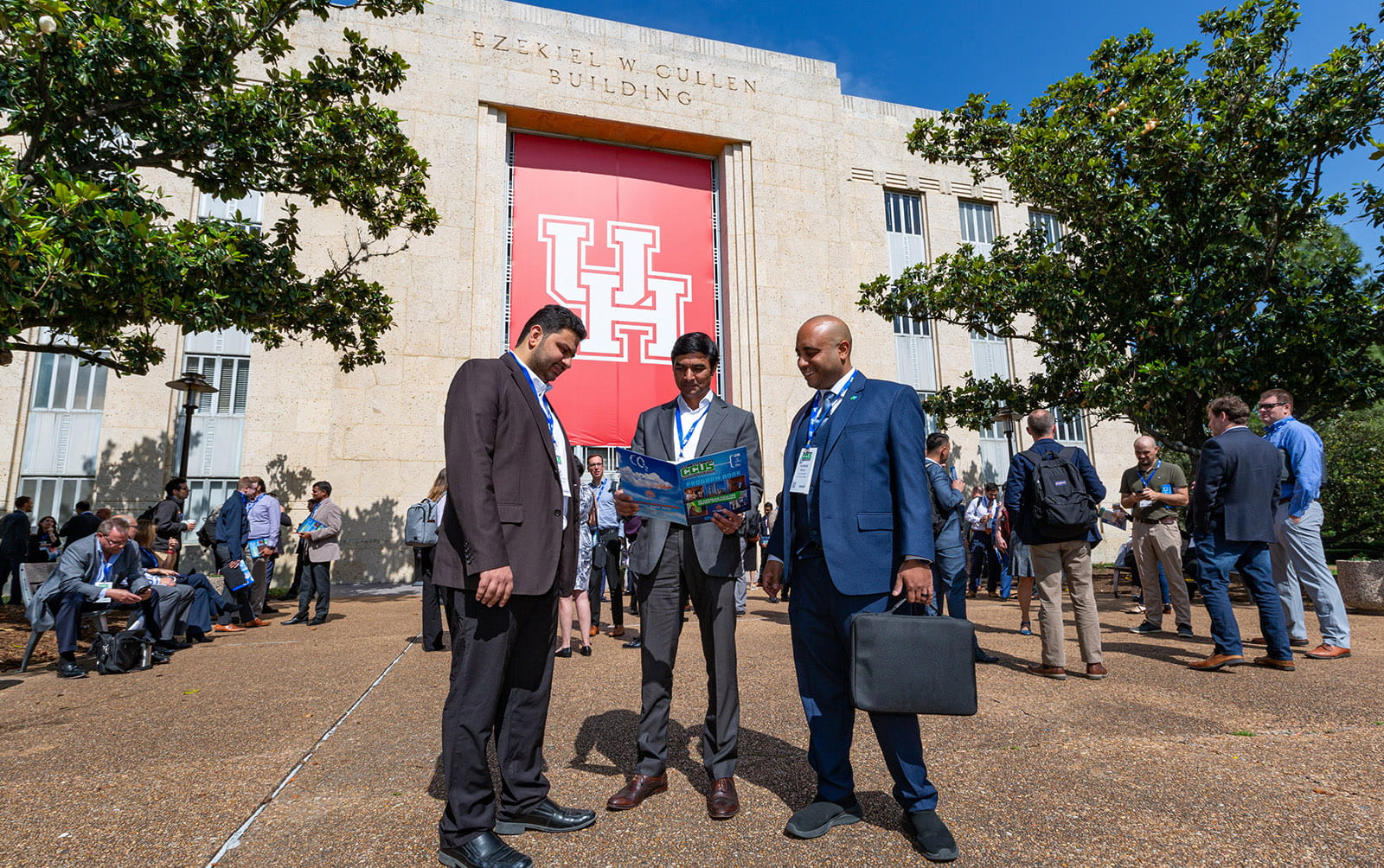CCUS conference highlights dramatic progress of carbon capture

Pramod Patil (center) with Taqi AlYousuf (left) and Hussam Banaja (right) on the campus of the University of Houston compare notes during a break at the 2023 CCUS Conference hosted by the Society of Petroleum Engineers, American Association of Petroleum Geologists, and Society of Exploration Geophysicists.
More than 1,300 energy professionals gathered at the University of Houston, April 25-27, to explore topics such as geophysical techniques for storage sites and advances in CO2 storage modeling during the 2023 carbon capture, utilization, and storage (CCUS) conference hosted by a trifecta of leading professional societies—the Society of Petroleum Engineers, American Association of Petroleum Geologists, and the Society of Exploration Geophysicists.
In just a few short years the conference has become the influential platform for all aspects of the carbon capture lifecycle as energy companies prominently figure carbon capture into their business plans.
With more than 130 presentations on the three-day agenda, operators worldwide are looking for CCUS technologies to provide significant strategic value in the transition to net-zero.
Keynote speaker Tim Duncan, President & CEO, Talos Energy, detailed the U.S.-based energy company's journey in expanding its upstream exploration and production portfolio with several large carbon capture and storage joint ventures to enhance its strategy to be a complete energy company.
“We look at CCUS as the building block of the energy company of the future,” said Duncan. The decision was made to lean in and make carbon capture and storage part of the broader equation, he added.
Illustrating how Aramco has embraced CCUS, Pramod Patil, EXPEC ARC, Reservoir Engineering Technology Division, participated in a panel discussion “Environment, Sustainability, and Governance (ESG) and CCUS” highlighting Aramco's four sustainability focus areas: climate change and the energy transition; safe operations and people development; minimizing environmental impact, and growing societal value. He pointed to the company's ambition to achieve net-zero Scope 1 and Scope 2 greenhouse gas emissions across wholly owned operated assets by 2050 and the interim targets set as well as other strategies to support ESG goals.
“ESG importance is going to grow with time for all the energy-related companies to reduce Scope-1, Scope-2, and Scope-3 emissions,” said Patil.
Aramco's emissions reduction strategy includes CCUS. Late last year the company announced large-scale deployment of carbon capture and storage with a carbon capture hub located in the industrial city of Jubail on the east coast of Saudi Arabia with operations slated to begin by 2027.
Aramco was a conference platinum sponsor.



